A blockchain is a decentralised ledger that can be used to record transactions. It is made up of records that have been given the name “blocks,” which are then connected to one another in the form of a chain. Blockchain, which derives its name from its decentralised ledger-like structure, is most frequently utilized for the purpose of documenting transactions involving cryptocurrencies, with the Bitcoin platform serving as the most prominent example of this application.
Outside of the realm of finance, it is a versatile instrument that may be used for a wide variety of purposes beyond merely cryptocurrency. In recent years, it has come to be recognised as a potent instrument in the business sector due to the fact that it boosts operational efficiency while simultaneously lowering expenses.
It was known for using large quantities of energy, which resulted in a significant negative impact on the environment, despite the fact that it was a highly desirable instrument in the corporate sector. Despite this, blockchain development services has emerged as an innovative tool that companies can use to implement a management concept known as corporate social responsibility (CSR). CSR is a management concept in which businesses integrate social and environmental concerns into their business model and the interactions they have with stakeholders. Blockchain is a tool that businesses can use to implement CSR.
How Blockchain Technology is Integrated with Corporate Social Responsibility?
A growing number of people in every region of the world are participating in the social responsibility movement. It is possible to use blockchain technology to incorporate a wide variety of environmentally friendly practices that come under CSR. For instance, it might act as a foundation upon which to construct a circular economy. A circular economy is an economic strategy that aims to eradicate waste and the unending use of resources.
On a more granular level, corporate social responsibility (CSR) and blockchain technology can both be implemented into the supply chain of a corporation. It is a fantastic opportunity for businesses to follow the trend of social responsibility in society, and one that can be taken advantage of by incorporating CSR into a business model through the utilization of blockchain technology.
Consumers are now expecting that businesses make genuine and demonstrable efforts, and some even state that they would prefer to purchase services from companies that can demonstrate their commitment to environmental stewardship.
For a long time, campaigners have been criticizing corporations, exposing them for greenwashing and dishonesty in their practices. To make a long tale short, firms frequently cover their tracks by claiming to be committed to environmental and social sustainability, all the while engaging in practices that are detrimental to society.
The value of blockchain technology in the context of corporate social responsibility is entwined with the benefits that blockchain technology provides to customers and enterprises. We have the chance to mitigate the negative impact and move forward toward a future that is more sustainable because of the foundational principles that it is based on, which are trust and transparency.
Also Read Here: Evolution Of Businesses In The World Of Blockchain Development
The Advantages of Blockchain For Customers and Companies:
Through increased transparency, the management of socially responsible supply chains is possible thanks to blockchain technology. It improves one’s visibility throughout the entirety of the landscape:
- Logistics involved in moving products from stockrooms to retail outlets.
- Condition, level of quality, and cost of the products.
- The processing of orders and carrying out of transactions.
The widespread accessibility of information fosters an atmosphere that is perfect for maintaining data integrity. The decentralised nature of Blockchain’s structure ensures that every participant retains control over their own processes and has access to relevant data at all times. The specifics of each and every transaction are documented and made available via a permanent history at every stage of the process that is involved in the supply chain. Once the data has been created, it cannot be altered or erased in any way. Because of this, the ledger cannot be tampered with in any way.
It is possible to simultaneously do the tasks of linking and sharing thanks to the comprehensive tracking and verification process. The elimination of human error, a reduction in costs, and a minimization in the amount of time delays connected with conducting transactions are all advantages. This will result in an enormous increase in the efficiency of supply chains.
Blockchain technology offers the possibility of drastically reducing the time and cost associated with completing a transaction by removing unnecessary overhead expenses (such as trading assets) and the participation of third parties. For instance, as a result of blockchain’s ability to lower the risk of selling numerous invoices, the cost of invoice factoring may be decreased by as much as 25 percent.
The use of blockchain technology may make it easier to detect and rectify violations of contracts, as well as redundancies and bottlenecks in the flow of commodities. This improved ability to track and identify individuals also contributes to a greater sense of corporate social responsibility. Because it can keep a record of past transactions and production, blockchain technology is suitable for incorporation into the CSR initiatives of a company. This can be used as evidence that a company uses raw materials or goods that have been sourced in a compassionate manner.
In addition to this, it gives customers the opportunity to become well-educated on the business practices of a company and the sustainability of the items the company sells, which enables them to make informed choices about where they should spend their money. A heightened awareness on the part of consumers would also motivate businesses to obtain their resources in a more environmentally responsible manner and to ensure social responsibility at every stage of the supply chain.
Consumers and businesses both stand to gain from the implementation of blockchain technology, but society as a whole will also profit from this development as it helps us move toward more ethical business models.
The Circular Economy and Blockchain Technology
A circular economy may be encouraged at a bigger scale through the use of blockchain technology. This idea involves cutting down on materials and waste as well as finding new uses for products in order to create what is known as a “closed-loop” or “cycle” that helps conserve resources.
Blockchain technology, thanks to the high levels of openness and traceability it offers, can encourage the adoption of circular economies within companies. It is able to follow resources used from the time of extraction all the way through distribution and the purchase of those resources by consumers, all while validating its social responsibility declarations with complete confidence.
The capacity of blockchain to facilitate the creation of a unique digital identity that can be traded is just another one of its remarkable applications. This has the potential to highlight the underlying value of natural resources, which may in turn encourage consumers and businesses to adopt circular economies and behaviors that are tied to them.
The recycling business is a good illustration of a circular economy because it reuses and recycles materials. Plastic Bank, a recycling company that specializes in plastics, has developed a system in which customers can earn digital tokens in return for recyclable plastics that they have collected. After that, you’ll be able to use these tokens in any of our partner retailers. It is a socially responsible way to create cash and handle environmental challenges that have been afflicting society for some time now. This is a way that has been troubling society for some time now.
Not as simple as it may appear at first.
In spite of the fact that it has emerged as a potentially useful new technology, there are obstacles in the way of its widespread deployment. The promotion of the adoption of blockchain technology is analogous to the promotion of cultural shifts within a society. Both are becoming increasingly challenging and need a significant amount of time to fully implement.
Integrating novel technological processes into supply networks that are currently in place is not a simple task. This is undeniably one of the most difficult challenges presented by the implementation of blockchain technology. In order for enterprise blockchain consulting to have the impact that is anticipated, there are a few fundamental prerequisites that need to be fulfilled first.
There are six main steps that need to be taken in order to use blockchain technology, according to the Logistics Bureau, which is a supply chain consultancy company:
- The process of identifying anticipated benefits
- Determine the most effective technique of reaching consensus on the blockchain.
- Make a decision regarding the most suitable platform.
- Configure stated platform
- Smart contracts should be drafted.
- Create a user interface that is appropriate.
The phrase “smart contract” refers to digital agreements that are maintained on the blockchain and automatically carry out their terms and conditions when those conditions are met. It is essential to design smart contracts in advance because once they are integrated into the blockchain, they cannot be changed. This is one of the most important features of these smart contracts.
In the end, any investment in a blockchain should be analyzed and built from the standpoint of sustainability. Even though it has a lot of potential and is full of promise, blockchain technology is still in its infancy. As a result, it is difficult to make accurate projections on the real gains in performance for any kind of firm. When implementing blockchain, it is important to keep in mind both the opportunities and the risks.Which are the Best Blockchain Companies in India 2021?
The Potential for Sustainability offered by Blockchain Technology
The application of blockchain technology is essential to the progress being made toward environmentally and socially responsible forms of economic and social growth. Real opportunities are made available as a result of the optimization of supply chain management that this solution delivers, which is unsurpassed in terms of transparency and traceability. Without a doubt, it has the potential to contribute to advances in corporate operations, not only in terms of performance, but also from the perspective of ethics.
The use of blockchain technology and the development of a circular economy would have the effect of lowering negative impacts on the environment and increasing customer trust due to the improved transparency and accountability that blockchain technology offers.
HBRPEDUA
HBRPEDUA
HBRPEDUA
HBRPEDUA
HBRPEDUA
HBRPEDUA
HBRPEDUA
HBRPEDUA
HBRPEDUA
HBRPEDUA
HBRPEDUA
HBRPEDUA
HBRPEDUA
HBRPEDUA
HBRPEDUA
HBRPEDUA
HBRPEDUA
HBRPEDUA
HBRPEDUA
HBRPEDUA
HBRPEDUA
HBRPEDUA
HBRPEDUA
HBRPEDUA
HBRPEDUA
HBRPEDUA
HBRPEDUA
HBRPEDUA
HBRPEDUA
HBRPEDUA
HBRPEDUA
HBRPEDUA
HBRPEDUA
HBRPEDUA
HBRPEDUA
HBRPEDUA
HBRPEDUA
HBRPEDUA
HBRPEDUA
HBRPEDUA
HBRPEDUA
HBRPEDUA
HBRPEDUA
HBRPEDUA
HBRPEDUA
HBRPEDUA
HBRPEDUA
HBRPEDUA
HBRPEDUA
HBRPEDUA
HBRPEDUA
HBRPEDUA
HBRPEDUA
HBRPEDUA
HBRPEDUA
HBRPEDUA
HBRPEDUA
HBRPEDUA
HBRPEDUA
HBRPEDUA
HBRPEDUA
HBRPEDUA
HBRPEDUA
HBRPEDUA
HBRPEDUA
HBRPEDUA
HBRPEDUA
HBRPEDUA
HBRPEDUA
HBRPEDUA
HBRPEDUA
HBRPEDUA
HBRPEDUA
HBRPEDUA
HBRPEDUA
HBRPEDUA
HBRPEDUA
HBRPEDUA
HBRPEDUA
HBRPEDUA
HBRPEDUA
HBRPEDUA
HBRPEDUA
HBRPEDUA
HBRPEDUA
HBRPEDUA
HBRPEDUA
HBRPEDUA
HBRPEDUA
HBRPEDUA
HBRPEDUA
HBRPEDUA
HBRPEDUA
HBRPEDUA
HBRPEDUA
HBRPEDUA
HBRPEDUA
HBRPEDUA
HBRPEDUA
HBRPEDUA


Comments are closed.